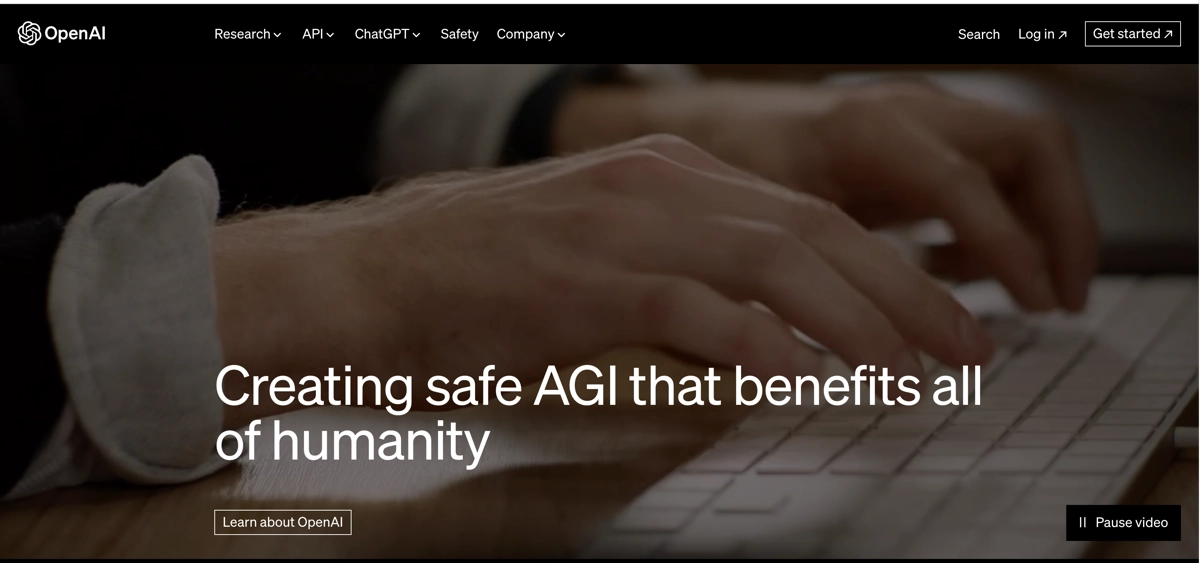
10 Companies You Need to Know That Are Developing Artificial General Intelligence
Here are ten innovative companies that are helping to revolutionize artificial general intelligence – an important field where machines tackle issues in ways identical to human beings.
Artificial intelligence (AI) has completely reshaped the modern world within the past few years. We now have chatbots that can converse with humans, autonomous vehicles (e.g., cars that can drive themselves), and even AI tools that can write plagiarism-free university-level theses and create award-winning computer-generated artwork.
Each day we move forward, pioneering companies are discovering new avenues of harnessing the complexities of human intelligence and replicating it as best as possible in artificial systems, and then taking it one step further than that. Although there are still many flaws in artificial intelligence, it won’t be long before it is perfected and we reach a level known as AGI (artificial general intelligence) – a type of AI that can process information and perform actions just like humans do.
AGI companies you need to know
It’s possible to approach AGI and conceptualize it in a variety of ways. Fundamentally, the aim is to develop an advanced machine that can not only perform the tasks it is instructed to do but also go beyond this by learning to perform other tasks outside of those it was originally instructed to do. Advanced AGI-powered systems like this can carry out autonomous self-control.
What do AGI companies plan on doing?
What would making this possible actually look like? To better understand what AGI is capable of, one would first need to comprehend where we currently are with artificial intelligence.
Right now, it’s regarded as relatively inadequate in almost all areas where artificial intelligence is being used, including things like smart assistants, driverless cars, and chatbots. It has also been described as narrow or weak AI. However, it couldn’t be further from the truth. Artificial intelligence is far from inadequate.
Today’s best AI-powered tools, for example, are capable of several impressive feats, like thwarting cyberattacks before they occur, completing our sentences before we finish typing them, and even defeating world-class chess players. These achievements are possible thanks to natural language processing, deep learning, and machine learning.
Today’s AI-driven tools are can only carry out actions they were pre-programmed to do. They may be excellent at carrying out these tasks but only work properly because of a specific set of pre-defined conditions and commands. If the conditions and environment are adjusted, the AI tool could easily become confused with the task at hand, causing mistakes to be made, meaning only human intervention would be able to rectify the system to get it back on track.
With limitations in functionality like this, narrow AI systems are fully capable of carrying out certain tasks with ease without fault, but they cannot perform additional tasks anywhere near the same level of precision.
Therefore, it undermines the purpose of artificial intelligence, which is essentially to mimic human intelligence in machines. For example, humans have the ability to adapt and reason dynamically, allowing us to not only solve the problem at hand but figure out new ways of solving problems along the way. We can also take a broad view of our understanding of certain things, use that knowledge to carry out other tasks, adapt as changes occur, and plan ahead based on that current knowledge.
As it stands, AI systems dominating the field today are unable to do this. However, many innovative new companies are tirelessly working to make it possible. Most industry experts believe the next step in making this a reality will be to advance and apply artificial general intelligence (AGI) systems.
One such tech giant with whom most people are familiar by now, multi-billionaire Elon Musk, is more optimistic than others in the field and expects AGI will be achievable before 2030. However, others in the private and academic sectors who are less optimistic don’t think that it will be achievable for a few more decades (at least 2060, some have predicted). Many agree that we are still at least a decade away from AGI completing complex tasks, but when we reach a time when it has been achieved, there will be hardly any sectors or industries that won’t be benefitting from the technology in one way or another.
Until that time arrives, companies that are currently working in the field will keep striving to push the boundaries of what is achievable with AI. Some of these experts are relative newcomers to the field, while others have been innovating for many years. No matter how long they have been working in AI, their collective vision is a world where machines are equally as complex and intelligent as us.
AGI companies you need to know
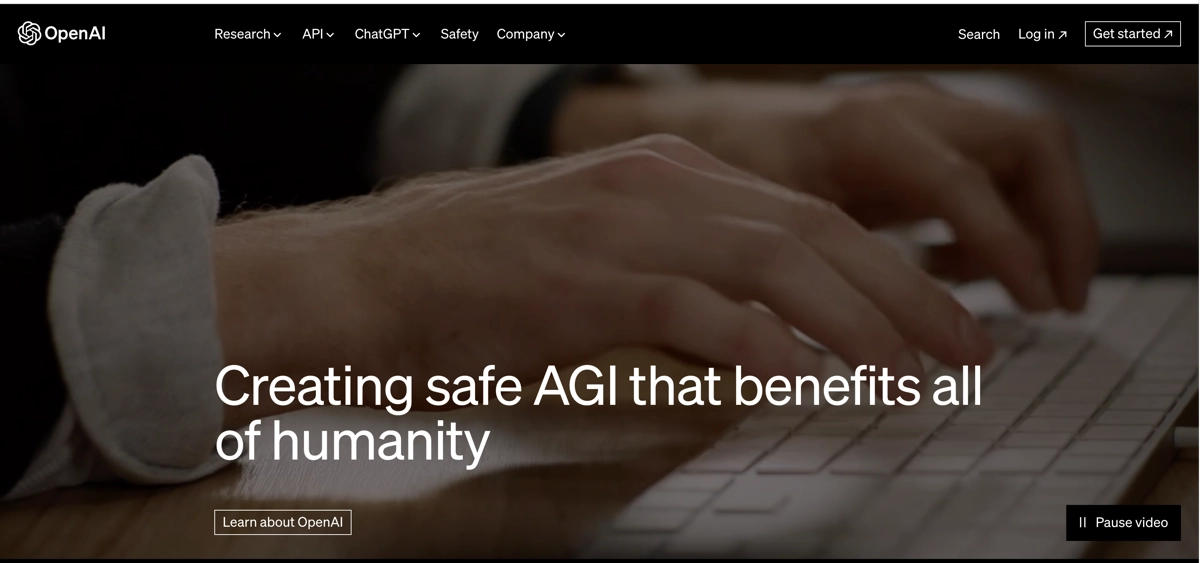
OpenAI
OpenAI is one of the most well-known companies currently working on developing AGI, or AI that can learn and behave just like us. Although the technology is still not available, the non-profit research company is one of just a handful of companies that has come closest to making it a reality, thanks to its groundbreaking GPT-3 AI-powered tool. It uses deep learning to generate text that most closely mimics that which is achievable by humans, and it has been described as an autoregressive language model.
Although it isn’t intelligent in the true sense, the application of GPT-3 has led to some fairly sophisticated things being developed, such as a chatbot that enables people to speak with historical figures and a question-based search engine. Over time, the team behind OpenAI aims to continue building artificial general intelligence in the safest way possible, and even tech giants like Elon Musk, Microsoft, and Amazon have backed them.
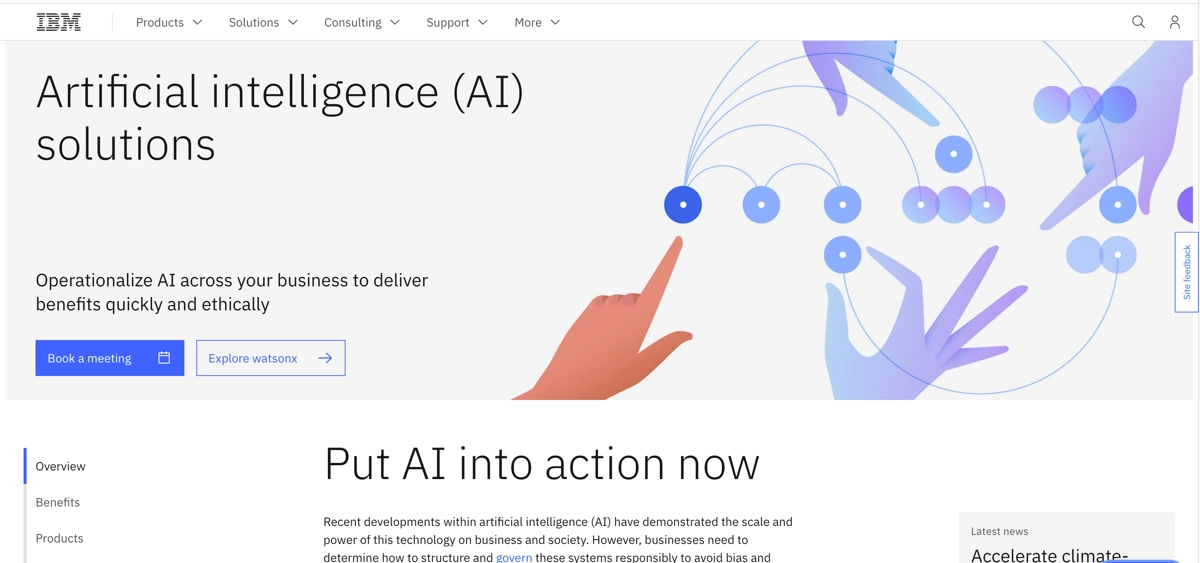
IBM
IBM was one of the world’s pioneering companies to get global recognition for its work in AI. Just over ten years ago (in 2011), IBM’s AI-powered program that uses natural language processing, Watson, played the iconic TV game show Jeopardy! and ended up defeating two former winners.
In recent times, IBM’s Watson supercomputer has been pushing the boundaries in several industries regarding what artificial intelligence is capable of across key areas, including ‘predictive analytics and natural language classification’ and ‘conversational AI.’
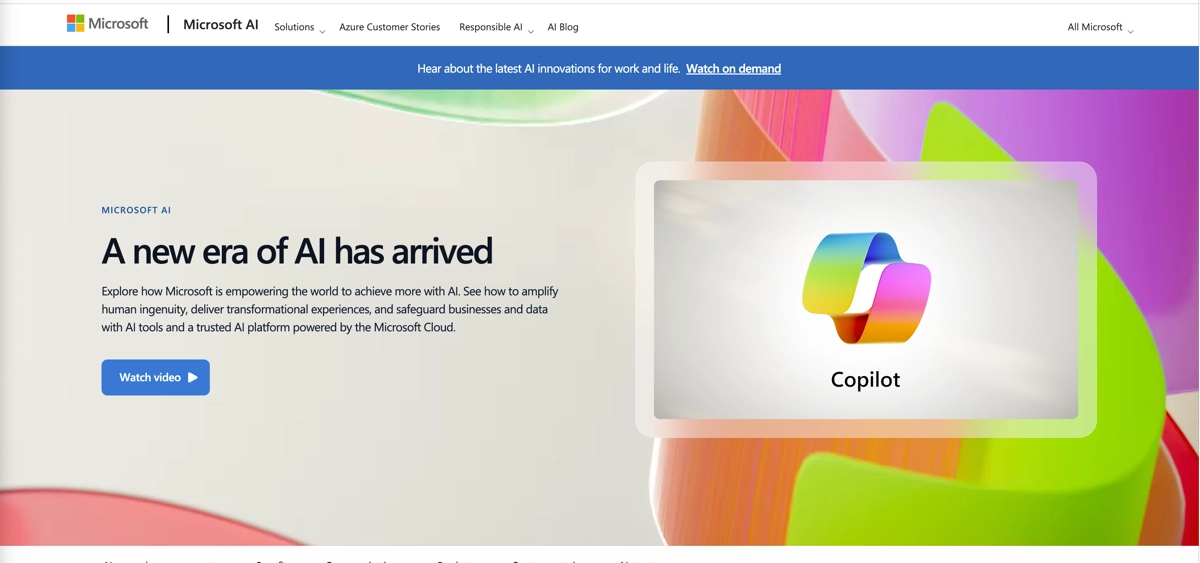
Microsoft
In the broader field of AI, Microsoft has made several breakthroughs. They have continued to make advancements in various areas, from cognitive computing to ML (machine learning) enabled cybersecurity. Lately, Microsoft has ventured into applied artificial general intelligence, working closely with a company called Huggin Face.
This pioneering AI research team has gained recognition for its foremost open-source library that helps develop ML models. Their aim is to bring the final product to Microsoft’s Azure. Both companies intend to open up the world of artificial general intelligence by advancing open-source collaboration and democratized ML strategies.
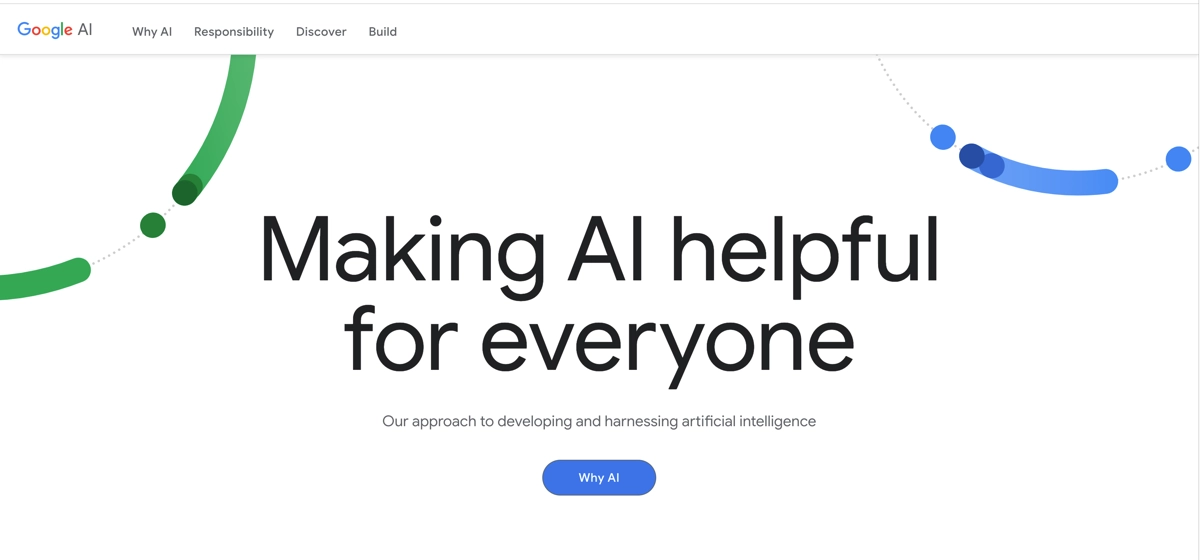
Google Brain
Google Brain is a research division focused on deep learning AI research. It works under the Google AI research division. There are several key areas of interest. For example, the team is attempting to push our current understanding of ML and AI to the limits by combining large-scale computing power with open-ended ML research.
One of the most significant achievements of Google Brain to date was when it developed one of ML’s biggest-ever neural networks, which ended up doing more than just teaching itself how to recognize cats. Incredibly, it went as far as to produce its own image of a cat, proving that software-based neural networks can mimic human intelligence in some ways.
Numerous products are currently powered by Google Brain technology, some of which include Android’s speech recognition system, the video recommendations we get on YouTube, the search feature in Google Photos, and even Google Translate. Google Brain is also making waves in other fields where AI is crucial, including cryptography, robotics, and healthcare.
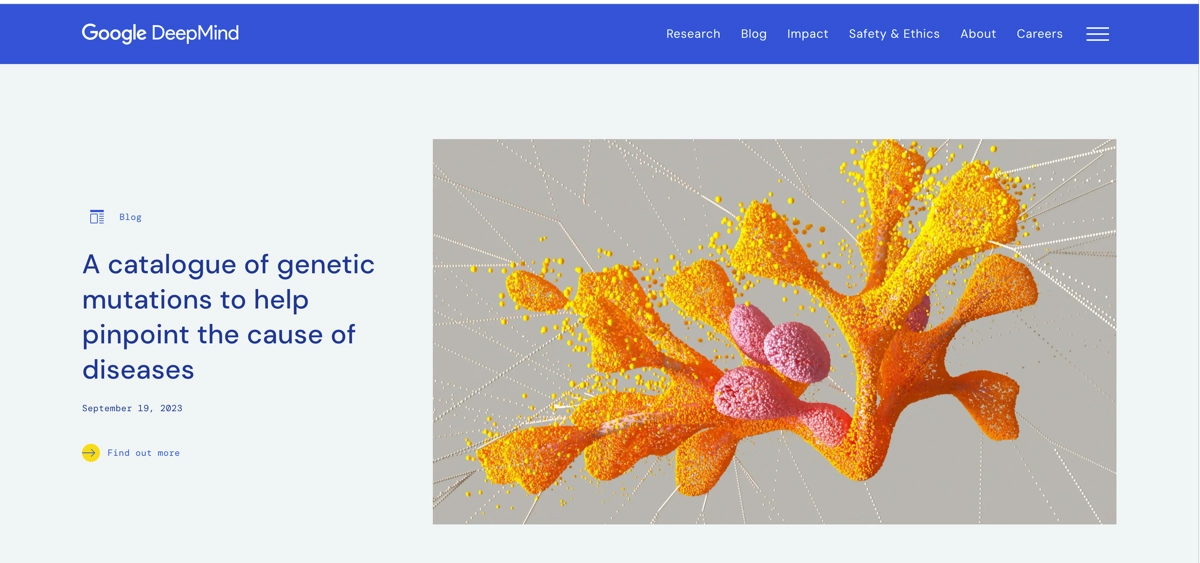
Deepmind
This company gained recognition when it released MuZero – an advanced computer program that utilizes artificial intelligence to become an expert in games it hasn’t been pre-programmed to play. It does so with sheer determination by replaying games millions of times. Deepmind has stated that it will continue to make advancements in the AI field for the betterment of humanity. The company merged with Google in 2014, and since then, it has made huge steps forward, specifically in the field of medical research, with crucial advancements relating to eye diseases.
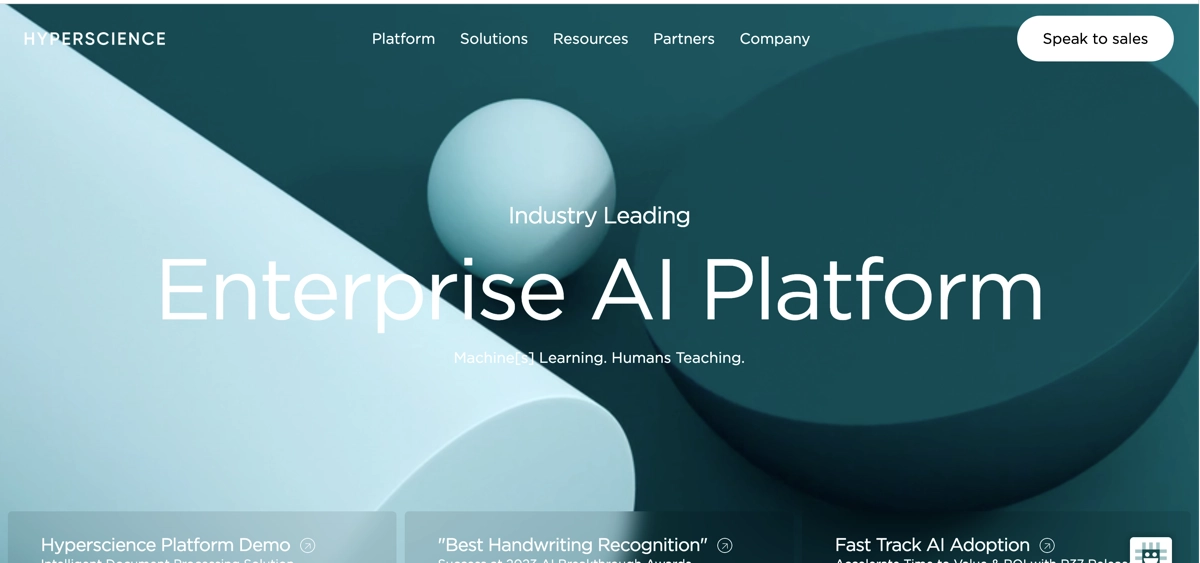
Hyperscience
Hyperscience is powered by ML, and it is used to make offices more efficient via automation. In a nutshell, Hyperscience’s software, which is artificial intelligence-based, is capable of extracting key information from documentation and translating human language text into machine-readable data.
Therefore, any task it’s instructed to carry out, from client onboarding to data entry, is easily achievable autonomously. Human intervention isn’t needed. The company also claims its tech continues to evolve and learn constantly. In other words, the software becomes smarter and quicker at what it does as the human element gradually decreases.

Darktrace
The self-learning artificial intelligence software developed by Darktrace is on the frontline of cybersecurity. Its main purpose is to detect cyber threats in real time to keep companies’ infrastructures and data out of harm’s way. Their platform functions by analyzing network data and generating calculations based on probability. It can then pinpoint deviations from usual behavior and detect possible cyber threats.
When suspicious activity has been detected by the system, it can eliminate it before any severe damage is done. In recent times, market-leading companies and organizations from various industries and sectors, including education, finance, media, and healthcare, and big brands like Billabong, Jimmy Choo, and the Coca-Cola Company, have relied heavily on Darktrace’s innovative self-learning AI.

MindBridge
MindBridge created a unique artificial intelligence-powered ‘Auditor’ tool to analyze and detect financial data mistakes, determine how risky certain transactions may be, and then come up with detailed risk assessments for major FinTech companies. Although the system may seem relatively simple, tools like Auditor are, in fact, one of the driving forces behind achieving true artificial general intelligence.
The company’s pioneering software that’s fuelled by machine intelligence is recognized as one the first such systems to carry out a financial audit with an entirely automated workflow. MindBridge has stated that its risk analysis system incorporates various ML strategies that bring together unsupervised and supervised learning. This is extremely handy in corporate management, finance, medical research, and national defense.
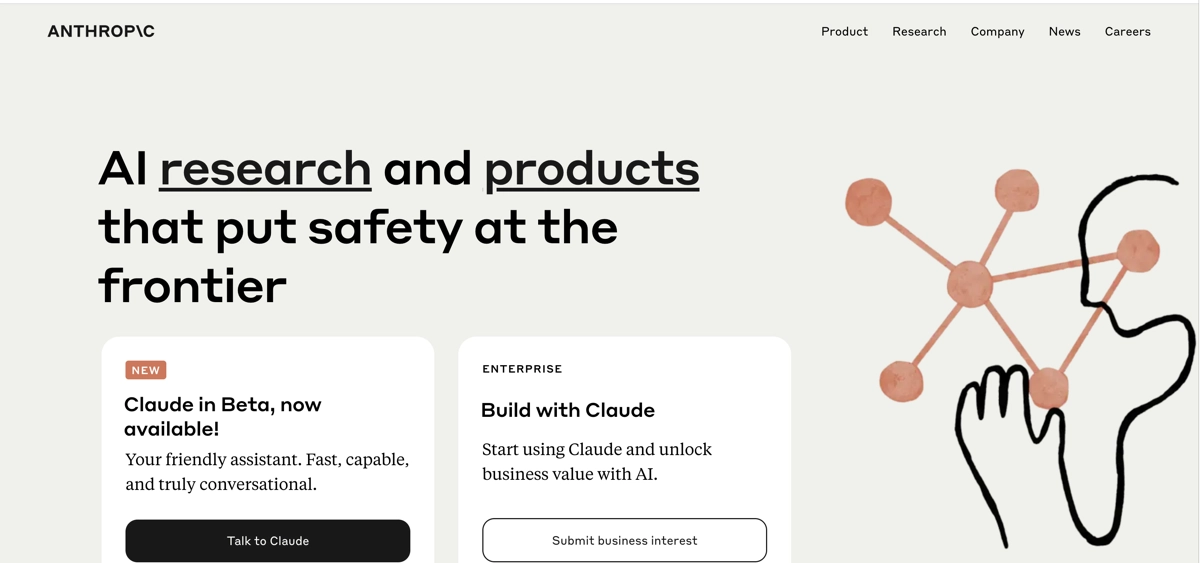
Anthropic
Anthropic is an artificial intelligence research company formed in 2022 and focuses primarily on developing general AI that’s maneuverable, understandable, and reliable. The company’s research is broad-ranging, including natural language processing, human feedback, code generation, and reinforcement learning.
For example, Anthropic released a paper that delved deeper into how users can be helped by general language assistants that have been trained correctly without presenting any immoral behaviors or giving advice that may be harmful. Anthropic was actually started by one of OpenAI’s former executives and has already successfully managed to obtain substantial financial backing.

Hanson Robotics
This company is one of the leaders in the field of artificial intelligence and robotics, and according to their website, one of their main goals is to develop socially intelligent machines with “rich personalities and social cognitive intelligence” so their machines have the ability to “potentially connect deeply and meaningfully with humans.”
Hanson Robotics is trying to make this possible by creating artificial intelligence and cognitive architecture-based tools that allow robots to mimic human personalities, interact meaningfully with humans, and then learn from those exchanges. The company is most known for Sophia – a humanoid robot first revealed to the world in 2016.
This advanced human-like robot has garnered a great deal of attention about the issue surrounding artificial intelligence ethics. Their creation was also the driving force behind SophiaDAO – an autonomous organization that’s decentralized and aims to offer help and assistance to any artificial general intelligence projects that may arise in the future.









